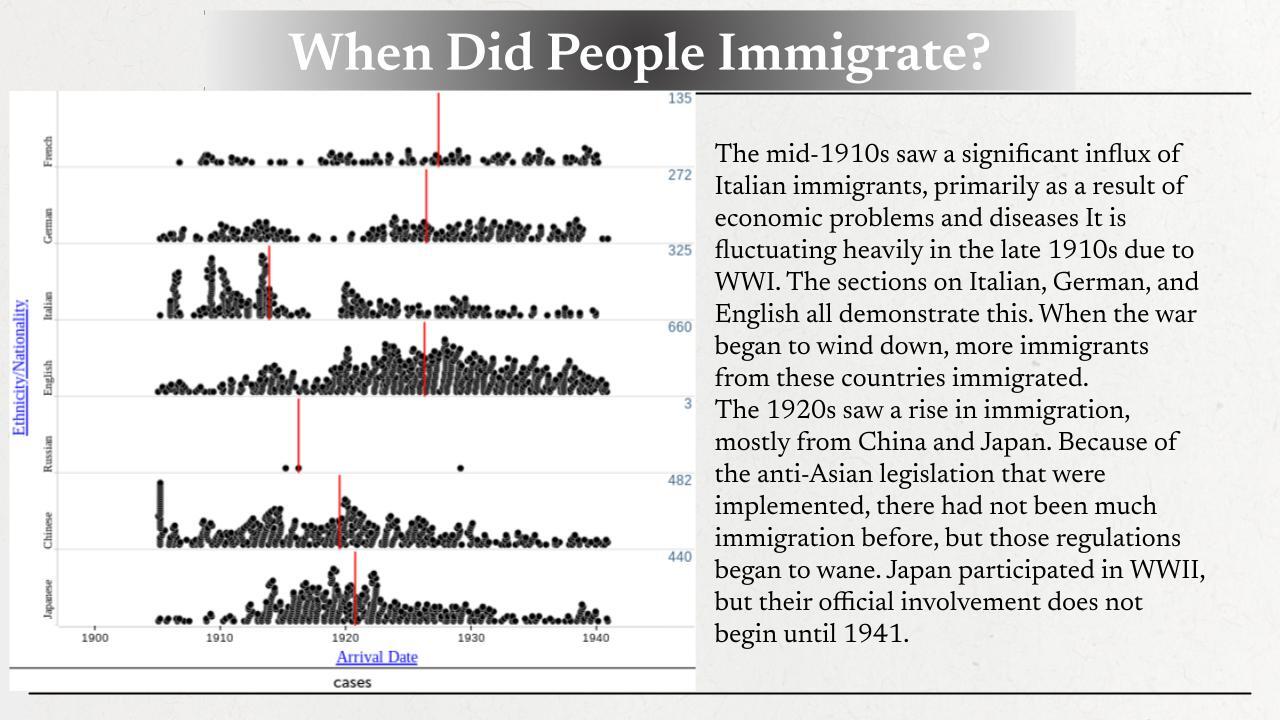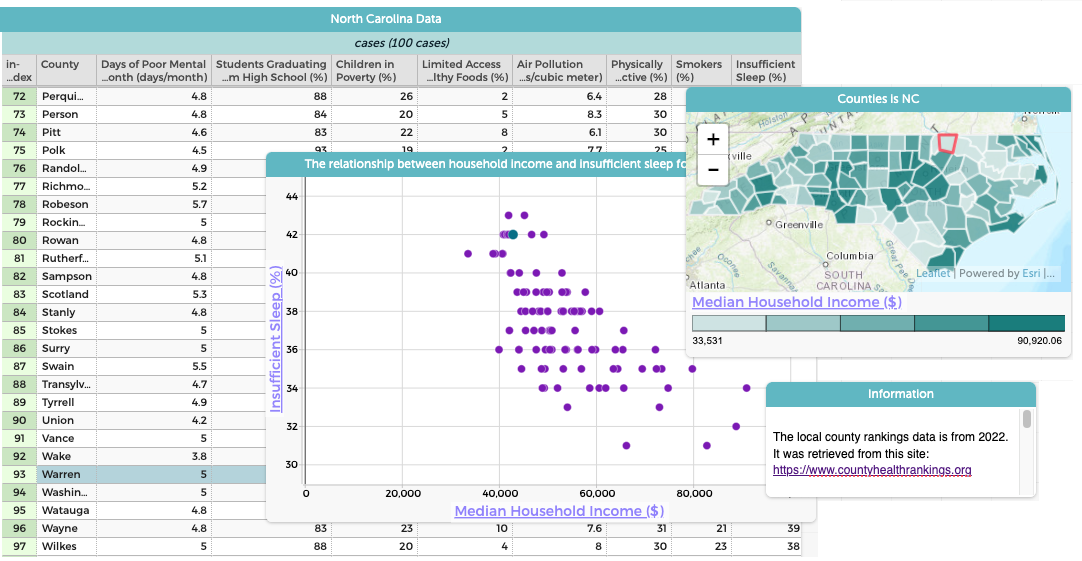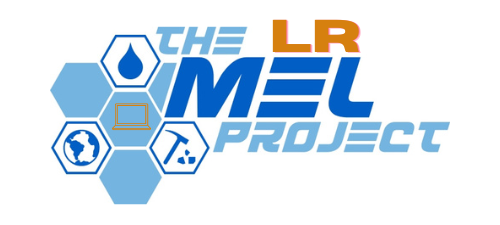 In this Spotlight, three projects describe their interdisciplinary approaches to the development of curricula, resources, and tools that use social studies as context for STEM learning and practices.
In this Spotlight, three projects describe their interdisciplinary approaches to the development of curricula, resources, and tools that use social studies as context for STEM learning and practices.
- Featured Projects
- Contextualizing Data Education via Project-based Learning (PI: Chad Dorsey)
- Exploring Data Science Through the Lens of Civics Education (PI: Traci Higgins)
- Scaffolding Middle and High School Students’ Scientific Evaluations of Sources and Alternative Claims in Earth and Environmental Sciences (PIs: Janelle Bailey, Sanlyn Buxner, Donna Governor, Doug Lombardi, Carla McAuliffe, Gale Sinatra)
- Additional Projects
- Related Resources
Featured Projects

Contextualizing Data Education via Project-based Learning
PI: Chad Dorsey
Grades: 7-8
Disciplines: Data Science, Science, and Social Studies
Project Description: Data fills all aspects of our lives, and data science has become a vital interdisciplinary endeavor. Data is valuable because of the insights it can provide into real-world problems and situations. To succeed in the future, students must come to see data as a tool they can wield to similarly useful ends. Students need opportunities to apply data science practices to realistic datasets to address issues within contexts relevant to their lives and to exhibit their understanding and skill through rich, authentic tasks.
Interdisciplinary project-based learning (PBL) offers great promise for just such authentic, contextualized data education. Engaging and empowering students with the responsibility and opportunities to apply “messy” datasets to relevant societal issues can help them develop acumen with data and agency as learners. Engaging with problems across disciplines can help students see data’s relevance to addressing issues in their futures.
The Concord Consortium, EL Education, and the University of Colorado Boulder are collaborating to enhance two seventh grade and two eighth grade open-resource English Language Arts EL Education PBL modules with authentic data experiences. Co-designing these modules with middle school teachers and piloting them in urban, low-income schools in New York City and Columbus, Ohio, we are researching how interdisciplinary data education can provide opportunities for marginalized students to take more control of their own learning and develop positive identities related to data, through integration with social studies and science topics.
To what degree are you working with non-STEM teachers and what supports are you providing to support the STEM work?
We are working with an eighth grade social studies teacher, an eighth grade humanities teacher (which combines ELA and social studies), and a seventh grade science teacher. Additionally, the co-design team at one school includes a literacy instructional lead and an eighth grade intervention specialist. Project staff from the Concord Consortium, EL Education, and the University of Colorado Boulder meet with teachers on a regular basis (over Zoom and in person) to review the curriculum as well as particular datasets. The teams are often school-based with occasional meetings for teachers from both schools. We held a two-day in-person workshop for all teachers.
Initial findings:
- The two schools had different structures of support, and the three teachers had different comfort levels and approaches to data integration.
- Just-in-time, on-the-ground support for teachers was vital to the development of comfort and efficacy, and more is needed to grow that.
- The eighth grade social studies and humanities teachers struggled with how to teach “math.”
- Student engagement with CODAP (the Common Online Data Analysis Platform) was high and resulted in the development of data skills.
- Students and teachers expanded their view of what counts as data and how and when data can be used.
- Students exhibited a deep understanding of the content knowledge in their classrooms and acknowledged various benefits of using data to further engage in and expand their learning processes.
- Students made promising progress in developing agency and acumen with data, particularly through crafting “data stories.” Intriguing elements of data acumen in the project’s interdisciplinary context include how students learn to frame investigable questions, the various analytic and sensemaking moves they make to contextualize data, and the nature of their claims and the stories they tell.
- Students made promising progress on developing identities as “data persons” (the term data person describes a person who recognizes and believes that they are interested in and able to use data for their learning and everyday life). Although a good deal of research has been done on science identity, math identity, and STEM identity, explicit research on “data identity” is new.
Product(s):
All the products below are educator facing.
-
Website: https://concord.org/datapbl
- Articles:
- Polman, J., Tran, T., & Miller, K. (2023). Data stories and interdisciplinary project-based learning. @Concord, 27(2), 12–13. https://concord.org/newsletter/2023-fall/data-stories-and-interdisciplinary-project-based-learning/
- The Concord Consortium (2023). Teacher innovator interview: Rachel Folger. @Concord, 27(1), 15. https://concord.org/newsletter/2023-spring/teacher-innovator-interview-rachel-folger/
- Blog post:
- Roderick, S. (July 6, 2023). A search for data offers a new friendship and answers to 8th graders’ questions. https://concord.org/blog/a-search-for-data-offers-a-new-friendship-and-answers-to-8th-graders-questions/

Exploring Data Science Through the Lens of Civics Education
PI: Traci Higgins; Co-PIs: Kaylene Stevens and Andee Rubin
Grades: 6-8
Disciplines: Data Science, Mathematics, and Social Studies
Project Description: Exploring Data Science Through the Lens of Civics Education is an exploratory research and development project that examines the potential for engaging students in investigations of civic datasets in ways that align with and support middle school social studies content. In the context of this project, civic data is defined as local, regional, or world data gathered by community/society-serving organizations to monitor, examine, or address social issues. The project uses a collaborative co-design process to develop data-rich experiences for the social studies classroom crafted to (1) deepen students’ data literacy, (2) develop students’ sense of efficacy and empowerment in working with civic data, and (3) create inclusive experiences connecting data to issues that have meaning and relevance for students and their communities. Our research explores synergies between data science and social studies education that have potential to deepen how students engage with both disciplines.
An iterative design-based research methodology is adopted involving periods of collaborative co-development followed by iterations of classroom implementation with the research focusing on understanding how students engage with data within the social studies context. The development work is launched via a summer workshop bringing together teachers and researchers for hands-on exploration of tools, datasets, and resources and collaborative time for developing data rich activities to bring back to the classroom. The activities engage students in data investigation and explore connections between data and civic action. Student impact is assessed through surveys, formative assessment, classroom video, interviews, and classroom work.
In what ways does STEM integration enhance what the students are learning in social studies? In what ways does the social studies context enhance students’ STEM learning?
STEM integration within the social studies classroom provides opportunities for students to engage with multivariate social and sustainability data to address questions that are meaningful to them and relevant to their communities. Given the increasing ubiquity of data and the impact of data on all facets of our lives, engaging with data within the social studies context creates a space for students to consider their own situatedness within complex real-world data while developing critical data literacy. This context provides especially strong opportunities for students to confront the complexities of measurement, ask questions of and with data, consider variability within aggregation, make sense of patterns over time and space, and leverage contextual knowledge to extract actionable insights from data. The practices students develop while working with multivariate data within the context of social studies are also foundational for reasoning with data across STEM and other disciplinary domains.
To what degree are you working with non-STEM teachers and what supports are you providing to support the STEM work?
We are primarily working with middle school social studies teachers, but some of our collaborating teachers are also pairing up with a mathematics teacher from their school who will participate in the summer workshop with them to share in the learning experience and collaborate on materials/lessons/activities that support student learning across the curriculum. The main research component of the project follows the social studies teachers back to the classroom to examine how students engage with civic data in this context, but we will also learn from the experience of working across disciplines during the summer workshop.
During the summer workshop our small group of social studies teachers, mathematics partners, and research staff (with expertise in both data science and social studies education) will explore curated datasets using the free, online, data platform, CODAP; build conceptual knowledge and practices that support interdisciplinary work cutting across data science and social studies; and collaboratively design data investigations and supporting materials and activities to take back to the classroom. Teachers are supported by the research team throughout the school year as they engage with data in their curriculum and implement new data rich activities developed during the summer workshop.
Initial findings: Our project is just beginning. Leading up to our first summer workshop, the research team is visiting the classrooms of collaborating teachers to explore how civic data intersects with the social studies curricula currently in use and where productive openings may exist for students to investigate multivariate datasets connected to curriculum topics. The research team is concurrently identifying civic datasets to fit these openings, curating datasets for teacher and classroom use, and developing hands-on activities for introducing teachers to tools (e.g., CODAP) and resources for engaging learners with multivariate data.
Product(s):

Scaffolding Middle and High School Students’ Scientific Evaluations of Sources and Alternative Claims in Earth and Environmental Sciences
PI: Janelle Bailey, Sanlyn Buxner, Donna Governor, Doug Lombardi, Carla McAuliffe, Gale Sinatra
Grades: 6-12
Discipline(s): Earth and Environmental Science, ELA, and Social Studies
Project Description: Contemporary scientific and social issues often necessitate reasoned and scientific evaluations to determine appropriate responses. Although reasoned and scientific evaluations may be challenging for students, well-designed instructional materials may facilitate the teaching and learning about socioscientific issues and other scientific topics of social relevance. Students learning about these issues encounter both scientific sources that represent current consensus and understanding as well as everyday information sources that may not be consistent with current science. Our project addresses tools to support students in reading and evaluating a variety of sources to compare various claims addressing scientific topics of social relevance (e.g., availability of freshwater resources, impacts of fossil fuel extraction, and past paleoclimatic changes). It draws on literacy concepts from science education, social studies, and English/language arts to develop and implement scaffolding tools that can support students' understanding of the links among data, evidence, and claims while considering the trustworthiness of sources and plausibility of competing claims. Scaffolds for lateral reading to support source credibility judgments are taught in social studies and/or ELA courses using online sources of information about scientific topics, which are then addressed through graphical scaffolds to support evaluation of model-evidence connections within science courses. Our collaborative team, which includes researchers and teachers across the country, is designing and testing these instructional scaffolds to help middle and high school science and social studies students deepen their evaluation skills as they make reasoned evaluations as expected of citizens in a functional democratic society.
To what degree are you working with non-STEM teachers and what supports are you providing to support the STEM work?
Both non-STEM (social studies and/or ELA) and science teachers are invited to attend our summer institute to learn about the two types of scaffolding, ideally in school-based teams who have an overlap in their student populations. Both groups learn the basics of each strategy, then breakouts allow the two groups to focus in greater depth on either the lateral reading strategies (social studies, ELA) or model-evidence link diagrams (science). Teachers also co-plan to consider how they can support one another.
What collaborations are you engaged in to support the interdisciplinary aspects of your work?
Members of the research team and master teachers come from all three of the disciplines involved. We have worked together to develop and review content; provide insights on disciplinary expectations, standards, and norms; and consider questions, designs, and methods for planned research activities.
What are some of the implementation challenges to this interdisciplinary approach and what strategies have you identified to address them?
The ability to recruit teachers with overlapping groups of students has been more challenging than anticipated. For example, lateral reading about science topics with social relevance would be more appropriate for a civics course than US history, but civics may not be taught at the same grade level as Earth or environmental science where the model-evidence link diagrams are best used. Relatedly, we are still engaging with both our master and participating teachers to make the integration of the ideas more natural, robust, and effective.
Initial findings: We are in the second half of Year 2. Year 1 involved the creation and initial bench testing of the scaffolds by our master teachers, and our first summer Institute in 2023. Currently we are collecting data from participating teachers in NJ, PA, and GA.
Product(s): The LR-MEL project website (https://serc.carleton.edu/mel/index.html) is an educator-facing portal for all the instructional materials and resources that we have developed. This website also acts as a hub for a large amount of professional development materials developed for webinars and teacher summer institutes. The science component of the larger project (prior NSF awards 1316057, 1721041, and 2027376) has also been very productive in conducting meaningful research and practitioner presentations and journal articles. These are available at our research team's website (http://sciencelearning.net).
Additional Projects
We invite you to explore a sample of the other recently awarded and active work that integrates social studies and STEM learning in the DRK-12 portfolio.
- DataX: Exploring Justice-Oriented Data Science with Secondary School Students
- High School Climate Education for a Resilient Future
- Learning in Places: PK-5+ Field-based Science Education Across Schools, Families, and Communities
- Professional Development for Teaching and Learning about Energy and Equity in High School Physics (Collaborative Research: Rachel Scherr and Bruce Mason)
- Reaching Across the Hallway: An Interdisciplinary Approach to Supporting Computer Science in Rural Schools
Related Resources
DRK-12 Publications on Social Studies and STEM integration:
- Fostering Expansive and Connective Sensemaking with Preservice Secondary Science Teachers
Preservice secondary science teachers often experience science learning in narrow and marginalizing… - Preparing for a Data-Rich World: Civic Statistics Across the Curriculum
Civic Statistics by its nature is highly interdisciplinary. From a cross-curricular perspective, teaching and learning…
Related Spotlights: